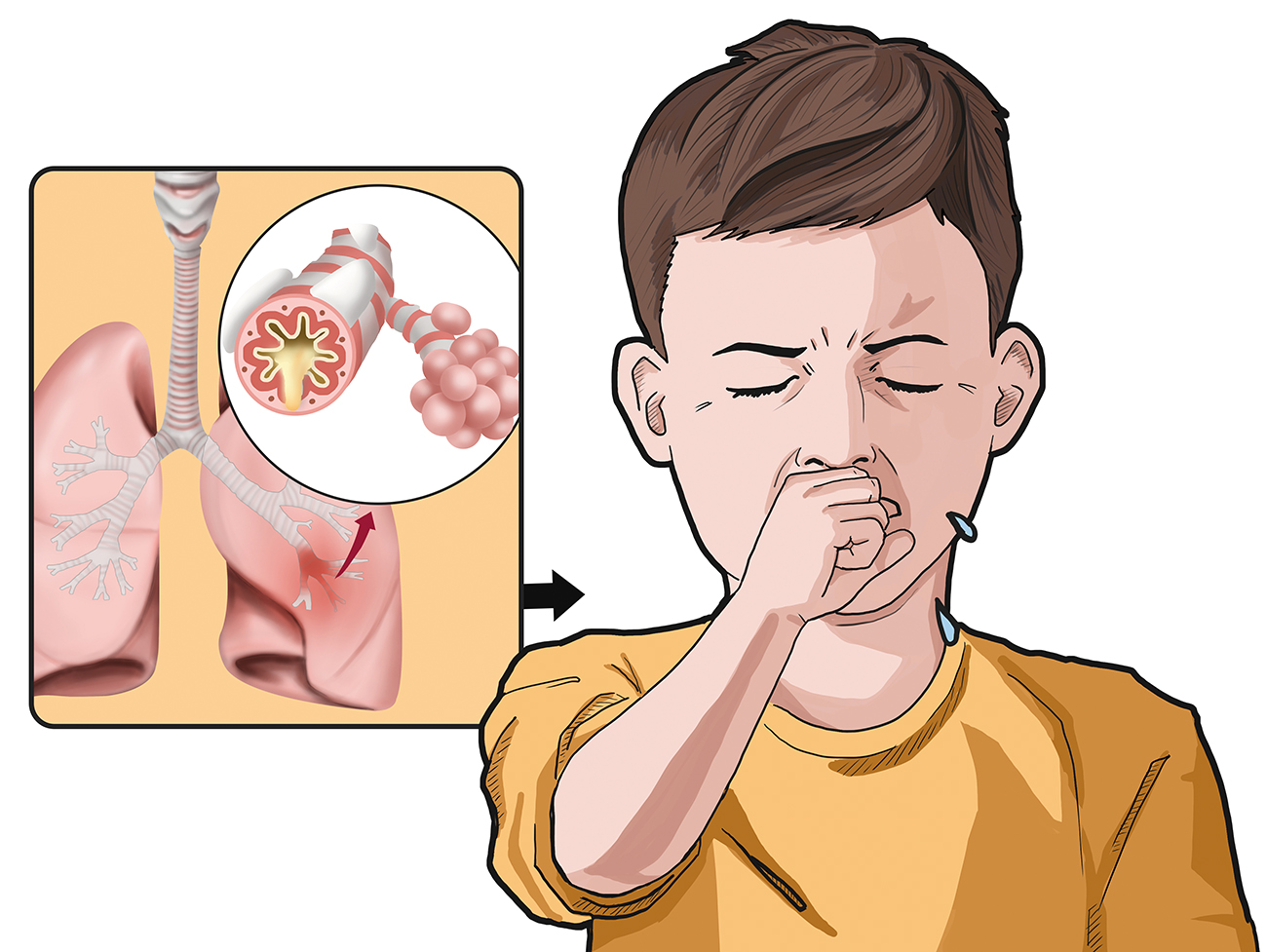Some models suggest that outbreaks of RSV in the autumn and influenza in the winter could be double the size of previous ‘normal’ years and might overlap (at least partially) with a peak in COVID-19 infections.1
Customers should be encouraged to take steps to prevent illness, both for their own health and to protect the NHS from a surge in illnesses. This can be done by:
- Ensuring they keep up to date with vaccinations
- Following good hygiene measures
- Supporting their immune system.

Vaccinations
Last year saw a record uptake in flu vaccinations and it is important that uptake remains high this coming autumn to help reduce illness and therefore complications associated with flu, which may lead to death. It will also help to reduce hospitalisations during a time when the NHS and social care may also be managing winter outbreaks of COVID-19.
The list of people eligible for an NHS flu vaccination has been expanded and, for the first time, will include all children aged 2 to 15 (but not 16 years or older) from 31 August 2021.2
Currently, all adults and young people aged 16 and over are eligible for a COVID-19 vaccination, along with children over 12 who are at serious risk from COVID-19 or who live with someone who is immunocompromised. It is possible that the criteria for vaccination will change and also that a booster programme will be introduced, so ensure you keep up to date with the latest information.
Activity: Check which vaccination services you provide in your store and consider how you will encourage customers to access all vaccinations they are eligible for.

Hygiene measures
Viruses, such as RSV, flu and COVID-19, are spread when an infected person coughs or sneezes. Tiny droplets of liquid can be breathed in directly from the air or picked up from a surface they have landed on, such as a toy or table.3
Following good hygiene measures can significantly reduce transmission. You can advise customers to:
- Use tissues to trap germs when they cough or sneeze
- Bin used tissues as quickly as possible
- Wash their hands often with warm water and soap and always after coughing or sneezing. If water and soap are unavailable, hand sanitisers can be used. However, you should advise customers to look for hand sanitisers which are anti-viral rather than antibacterial. Many of these will contain alcohol and customers should look for products containing at least 60%
- Clean and disinfect surfaces at work and at home.

The immune system
There are a number of things you can advise to help customers support their immune systems:
Get plenty of sleep – this is associated with both a reduced risk of infection and an improved outcome if customers do get infected.4 Adults should aim to get 7 or more hours of sleep each night; teens need 8 to 10 hours; and younger children and infants need up to 14 hours in a day.5
Eat a healthy balanced diet with lots of fruit and vegetables. Many nutrients, such as vitamins A, B, C and D, contribute to maintaining a healthy immune system. These can mostly be obtained from a healthy balanced diet, but you should advise customers to consider a vitamin D supplement during the winter months.
Getting enough fibre from fruit and vegetables feeds the gut microbiome (the community of healthy bacteria in your gut). A robust gut microbiome can help to support immunity.6
Some foods are rich in beneficial bacteria. These include fermented foods such as yoghurt, sauerkraut, kimchi, kefir and natto. For those who don’t eat fermented foods, a supplement containing live bacteria may be an option.
Exercise regularly – regular moderate exercise such as brisk walking, cycling, jogging and swimming can have a positive effect on the immune system. It is thought that exercise may help immune cells regenerate regularly.7
 Respiratory syncytial virus (RSV)8
Respiratory syncytial virus (RSV)8
RSV is a very common virus which infects almost all children by the time they're two years old. In older children and adults, RSV may cause a cough or cold, but in young children it can lead to bronchiolitis.
Bronchiolitis occurs when the RSV infection causes the smallest airways in the lungs (the bronchioles) to become inflamed. The inflammation reduces the amount of air entering the lungs, making it difficult to breathe.
Most cases of bronchiolitis are mild and clear up within two to three weeks without the need for treatment. However, about two to three per cent of babies who develop bronchiolitis during the first year of life will need to be admitted to hospital because they develop more serious symptoms, such as breathing difficulties.
The early symptoms are similar to those of a common cold, such as a runny nose and a cough, but further symptoms usually develop over the following few days, including: fever; dry and persistent cough; difficulty feeding; and rapid or noisy breathing (wheezing).
As bronchiolitis is viral, there is no specific treatment; however, symptoms can be managed with plenty of fluids and paracetamol or ibuprofen to reduce a temperature.
When to refer
You should advise parents and caregivers to visit their GP if the child:
- Is not feeding normally (they have taken less than half their usual amount during the last two or three feeds)
- Has not had a wet nappy for 12 hours or more
- Is breathing very fast
- Has a persistent high temperature of 38°C or above
- Seems very tired or irritable.
It's particularly important for parents to seek medical advice if their baby is less than 12 weeks old or they have an underlying health condition, such as a congenital (present from birth) heart or lung condition.
1. https://acmedsci.ac.uk/file-download/4747802
3. https://www.nhs.uk/conditions/bronchiolitis/causes/
4. https://pubmed.ncbi.nlm.nih.gov/30920354/
5. https://www.healthline.com/nutrition/how-to-boost-immune-health#1.-Get-enough-sleep
6. https://www.nature.com/articles/s41422-020-0332-7
7. https://pubmed.ncbi.nlm.nih.gov/26477922/
8. https://www.nhs.uk/conditions/bronchiolitis/
Online references last accessed August 2021.
